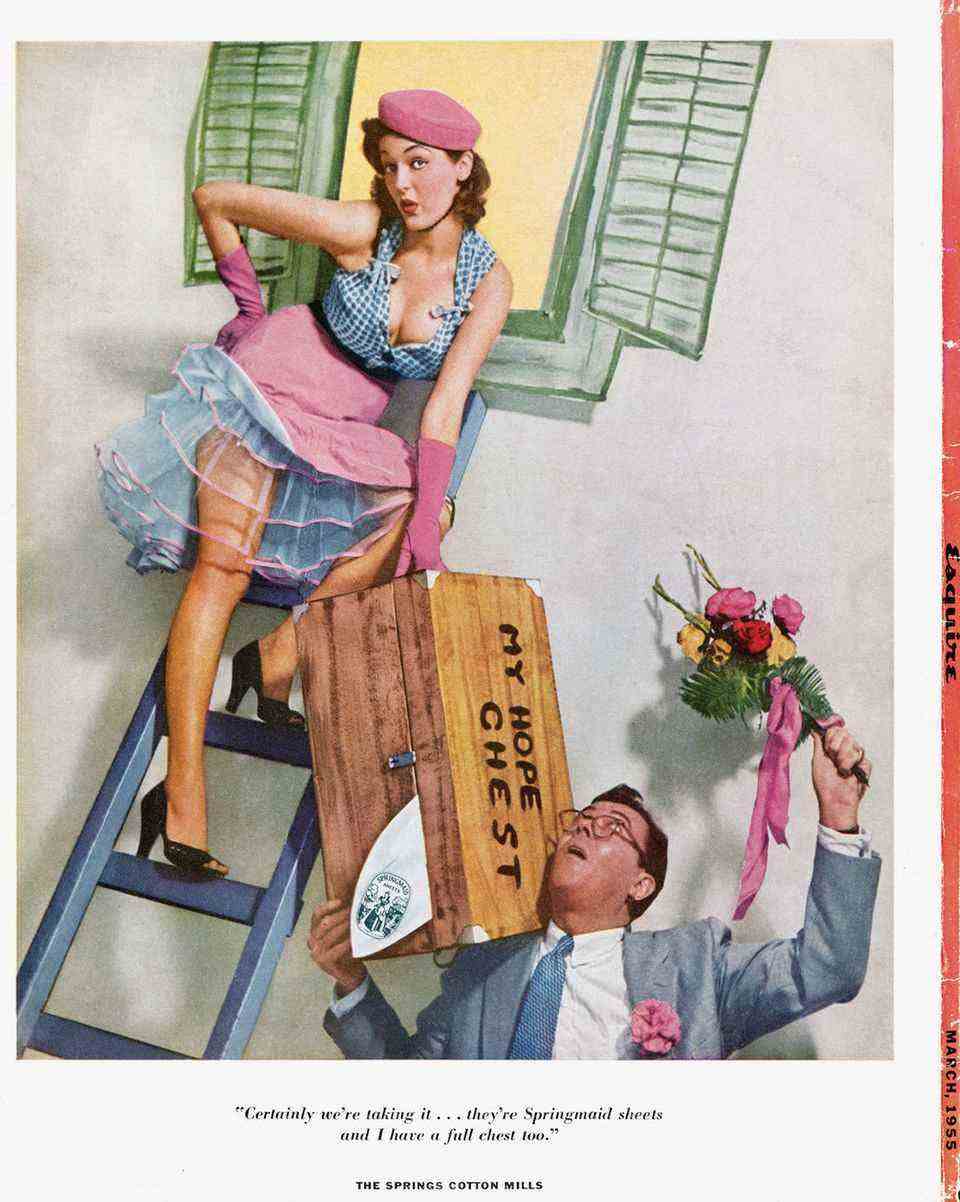Changing language
The “Fräulein” disappeared 50 years ago – but some women were proud of the salutation
The writer Annette Kolb, here in 1960, insisted all her life on the address “Fräulein”
In 1972 the federal government put an end to the “Fräulein”. He banned the form of address from his linguistic usage. The “Fräulein” as a term for unmarried women was regarded by many as disrespectful. But some could also be proudly called “Fräulein”.
The Duden defines “Fräulein” as a “similar title, also used as a salutation for an unmarried female person”. Usage: obsolete. Accordingly, the salutation was initially used for young women of the noble class and only later for commoners. So far so sober. But many “Fräulein” increasingly understood the form of address as condescending. After all, unmarried men were not called “little gentlemen” either. And the question arose as to why relationship status should play such a prominent role in the first place.
The criticism of “Fräulein” continued to fire in the 1960s, when gender roles, relationships and hierarchies were changing and women were demanding more rights. Finally, at the beginning of 1971, the Federal Ministry of the Interior invited the leading women’s associations to a press conference and solemnly announced that the official rules would be changed. The decree issued by the then Interior Minister Hans-Dietrich Genscher (FDP) was then announced around a year later, on January 16, 1972. It was the end of the “Fräulein” and thus a tradition that went back to the Prussian authorities.
The internal draft decree stated that the designation “woman” was neither a title nor a designation that “should or could be awarded”. “Every unmarried female person is free to be called ‘woman'”. According to the decree, there should only be the designations “Herr” and “Frau” in official use – and thus also on documents and certificates. In reverse of the previous regulation, the term “Fräulein” should now only be used if a woman explicitly requested it. There were such cases.
Activists of the first women’s movement wore the address “Fräulein” with pride
As the linguist Luise F. Pusch remembers, the majority of German women agreed when the “Fräulein” disappeared. But some would have missed the word too. “On the one hand there were older women who still felt connected to the first women’s movement,” says the 77-year-old. “Many activists of the first women’s movement deliberately stayed unmarried in order not to become dependent on a man.” Accordingly, they took the address “Fräulein” with pride, as it made this independence immediately visible to them. Pusch thinks of the writer Annette Kolb (1870-1967) as a famous example. For the rest of her life – she was 97 years old – she insisted on being addressed as “Miss”.
If you enter “Fräulein” on Google, the question quickly arises: Is the word Fräulein an insult? Some women still say: no – just like the Frankfurt District Court. It ruled three years ago that it was not defamatory that a tenant was listed as “Miss” in the stair cleaning plan displayed. or “Miss” is called. The court thus dismissed an injunction by the tenant. The reasoning for the judgment states that in the specific case it is also relevant that the defendants, at 89 or 92 years of age, have “a rather older vocabulary and corresponding moral evaluations”. In 1972, when the name addition was officially abolished, they were already in their middle years and had learned the concept of Fräuleins “as a regular, not disrespectful, but correct name addition”.
Some rate “Fräulein” positively to this day
You don’t have to be 90 to avoid the term “Miss” as condescension. There are also modern, pop-cultural trends that see the word as an expression of female self-confidence and self-determination. The magazine “Fräulein”, for example, which has been on the market for around ten years and offers its readers interviews, reports, fashion spreads and art, has found the following definition: “Fräulein speaks for strong and self-confident women who are in the midst of life, enchant and never get bored. Intelligent, stylish and experienced women who know what they want and value subtle differences. ” So the full program, that doesn’t sound like condescension, at most like a rather full and stressful everyday life for the women who feel addressed by this text.
“Elle” put it a little more dreamily a few years ago, but basically similar. Forty years after the abolition of the “Fräuleins”, the time had come in France too. “Whether married or not, young or old, what we demand is our inalienable right to be princesses,” said an editorial in “Elle” magazine, which spoke out against the disappearance of the Mademoiselle. This form of address for women is now a thing of the past in official language in France.
Sources: Duden, Citizens Service Hessen Law, “Elle”, “Young lady”


